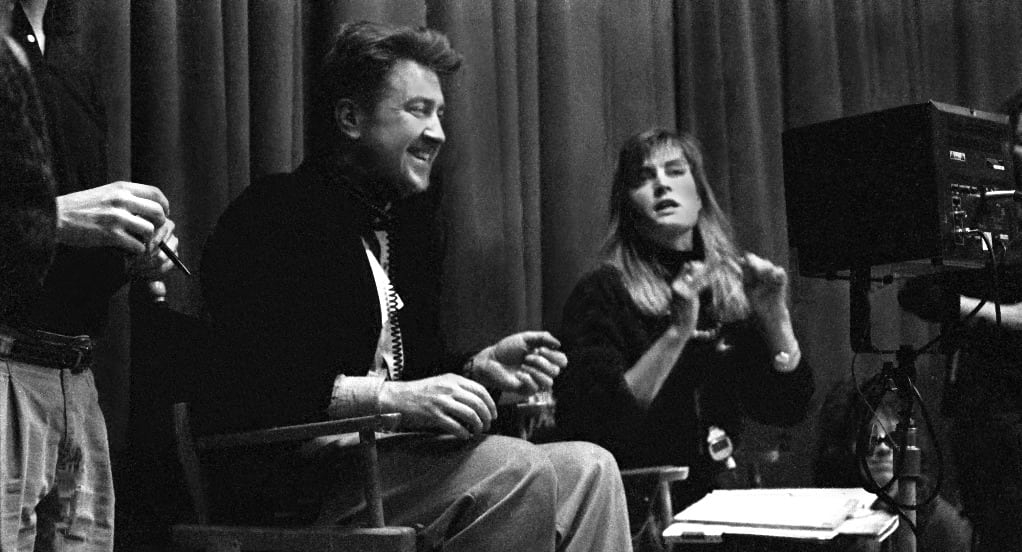

Co-creator Mark Frost, actor Dana Ashbrook, Executive producer Sabrina Sutherland and Sound designer Dean Hurley reflect on 35 years of the groundbreaking series.
“That’s a life,” says Mark Frost, reflecting on the three and a half decades since TV series Twin Peaks, which he co-created with David Lynch, first aired and inarguably revolutionised what dramatic storytelling on Television could look like. “We formed friendships that have lasted 35 years, and we’ve lost a lot of people along the way.”
There’s a strain in Frost’s voice as he mentions those who have been lost—Lynch, his longtime collaborator, passed away in January at 78 years-old, leaving a crater-sized legacy in his wake. Famously eccentric, Lynch made a name for himself as one of the world’s greatest living filmmakers with movies like Mulholland Drive, Blue Velvet, Eraserhead, and the three medium-defining seasons of Twin Peaks (as well as the series’ masterful companion film Fire Walk With Me). But to Frost, and indeed many of those who had the opportunity to work extensively with him, Lynch was, above all, a friend. “I didn’t know him as a cult or mythological figure. I knew him as a very feet on the ground, meat-and-potatoes human being, who loved to work, who was tremendously, almost relentlessly cheerful…the last conversations we had he seemed very much at peace with where he was. I took a lot of comfort in that.”
As devestating as Lynch’s passing was and still is to his friends, family and film fans across the globe, there are fresh flowers sprouting in the place he once stood—opportunities to celebrate his legacy and introduce a new generation of cinephiles to his work. A few days ago, at a special screening of the Twin Peaks pilot, which featured a live Q&A with Kyle MacLachlan (AKA Special Agent Dale Cooper), the British Film Institute announced a season of programming opening January 2026 that will see all of Lynch’s works broadcast on the big screen once more (even including, apparently, his beloved daily weather reports). A few weeks earlier, it was also revealed that the Twin Peaks cast are reuniting and hitting the road on a special tour celebrating the series’ 35th birthday.
We sat down with Frost, joined by actor Dana Ashbrook, executive producer Sabrina Sutherland and sound designer Dean Hurley to reflect on 35 years of the groundbreaking series, and the legacy of one of cinema’s most uncompromising, enigmatic and trailblazing filmmakers.
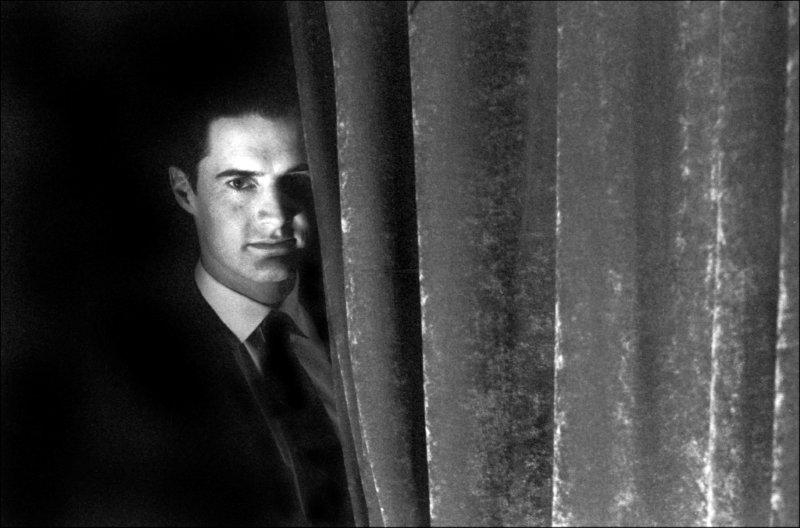
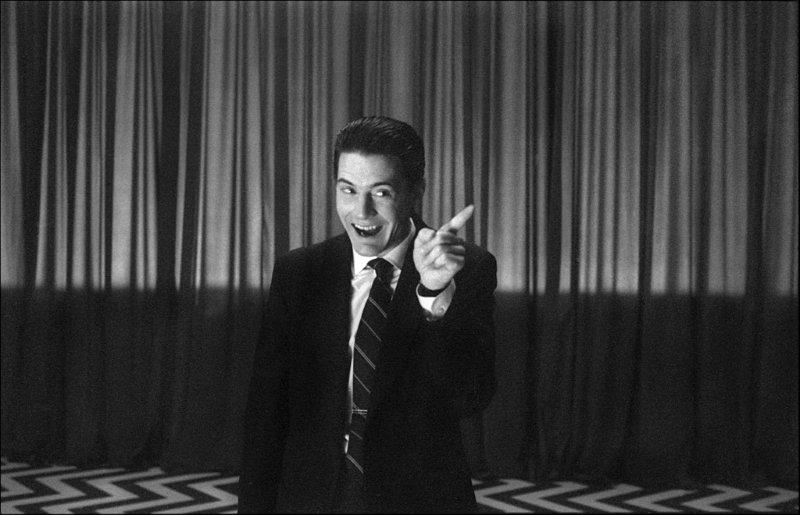
Sabrina Sutherland (Producer, Twin Peaks): No day was ever the same when working with David. You had to be free to do anything he wanted to do in the spur of the moment.
Dana Ashbrook (Actor, Bobby Briggs on Twin Peaks): I didn’t know anything that was going on, ever, except when it came to my stuff. We would get the scripts, but none of the dream-sequence stuff was ever included in the scripts. I only ever saw my stuff. I was just as surprised as everyone else was about who killed Laura. I served my purpose in the story, and that’s where I began and ended as far as what I knew. I never got caught up in the marketing on the show, which was famously framed around “who killed Laura Palmer?” That question was never even tossed around on set. I never thought of Twin Peaks as a whodunit. It was always about the characters and the little town they lived in.
Mark Frost (Co-Creator, Twin Peaks): We almost never considered the audience at all. Our job was always to satisfy ourselves, then put it out there and see what happens. Otherwise, you can quickly teeter into pandering. If you trust your instinct as a storyteller, tell them the story you want to tell, and then the rest is up to them. I’ve heard that the studios, which are no longer run by people who have any particular interest in healthy or nutritious storytelling, are using Chat GPT now to analyse scripts that have been submitted. It’s calamitous. AI is not our friend. It’s a tool.
Dean Hurley (Sound Design, Twin Peaks): This is something that I’ve been thinking a lot about since he passed. I felt like I was always trying to figure him out, and I had so many innocuous interactions with him. He is an enigma to the general public, but I feel like one-on-one there is still something incredibly enigmatic about him that I still couldn’t figure out. That speaks to how unique his molecules were. When you were encountering him, it was just a different human encounter than most of the other people on the planet. Looking back, I’m trying to figure out ‘what just happened?’ what was all that?’ I’m kind of pouring over old footage and recordings of us working together, and reanalysing and forgetting stories that he told. I don’t have an answer. Singular is the best way to describe him. He just had a very unique way of moving through life.
Dana Ashbrook: It’s always there. He was 44 when we shot the pilot, and I was 21, and I remember thinking, ‘oh my god, he’s so old.’ He was like a father figure. And now I’m 58 and it’s like, ah, shit, he was a fucking baby just like we all were [laughs]. But that mentor and father-figure thing stayed for sure. I always wanted to pick his brain. I would go over to his house for coffee just to chat. His goal was art. All day, every day: art. No matter what. I had never met someone like that before. I haven’t met anyone since who has been like that.
But he was aware of his own eccentricity. In the third season there’s a scene where I go and talk to Norma in the Double R diner. It was the first scene I shot for the season, and during the rehearsal he comes up and pulls me aside and says, ‘hey, I can’t believe I’m telling you this, but could you be less weird?’ [laughs].
Sabrina Sutherland: He was always larger than life in my world. He had this presence that was awe-inspiring. He was the funniest guy I had ever met, he told stories like no other. He commanded attention, but never on purpose. When I first met him, of course, you think, ‘woah, this is David Lynch’, and there’s this otherworldly pedestal you put this person on. But for me he’s remained on that pedestal. He’s never let me down, as far as his creativity or expansive humanity goes he’s always been someone I could look up to. Over time, it’s been wonderful to get closer and closer to him. People have said that we were like brother and sister because we would fight all the time, but it was never in anger… It was more that I felt comfortable enough to allow him to vent his frustration out on me, and he was comfortable enough to vent. It got very familial in that way. I remember him being gentle. Not loud, not brash, just your everyday warm person. He exuded that warmth to such an extent that when he looked and smiled at you you felt like you were being seen, that you were special. He had that kind of effect on everyone he met. I truly loved him as a human being.
Mark Frost: I knew David as my friend. I didn’t know him as a cult figure or a mythological figure. I knew him as a very feet on the ground, meat-and-potatoes human being, who loved to work, who was tremendously, almost relentlessly cheerful. You meet when you’re young and relatively starting out. You’ve got hopes and dreams, and lots of idealism for the future, and then you both go through the experience of aging and living and getting your bumps and bruises along the way. It’s the way all old friends treat the passage of time… it takes a bite out of you. And you acknowledge that and you hope that you receive wisdom in exchange for the loss of whatever you think time has taken from you. I certainly felt that about David. We didn’t have a lot of regrets, and the last conversations we had he seemed very much at peace with where he was. I took a lot of comfort in that.
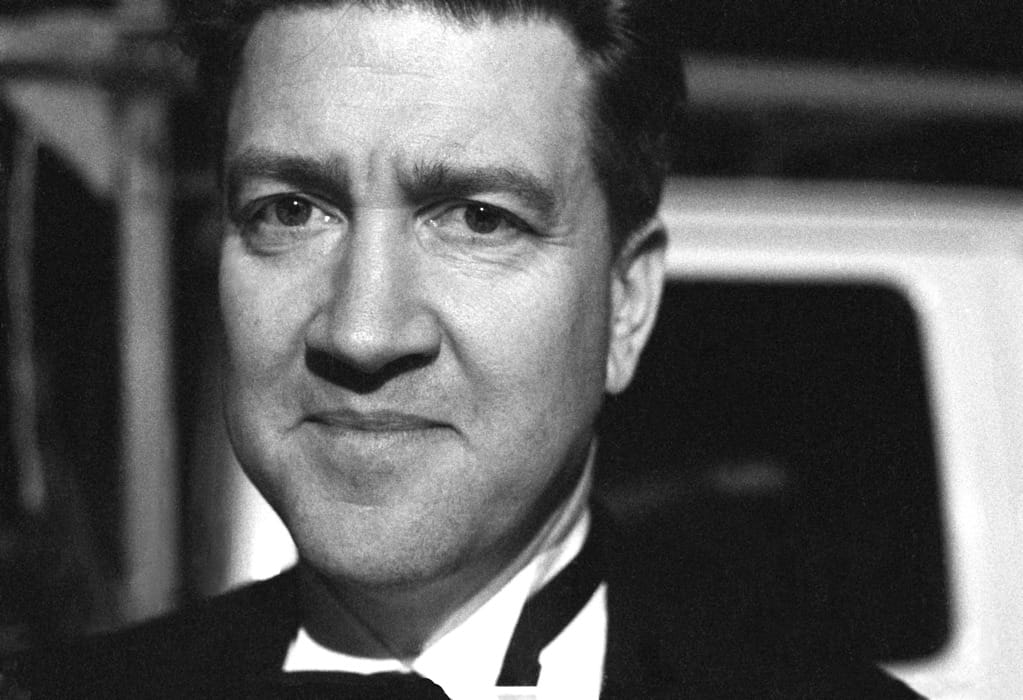
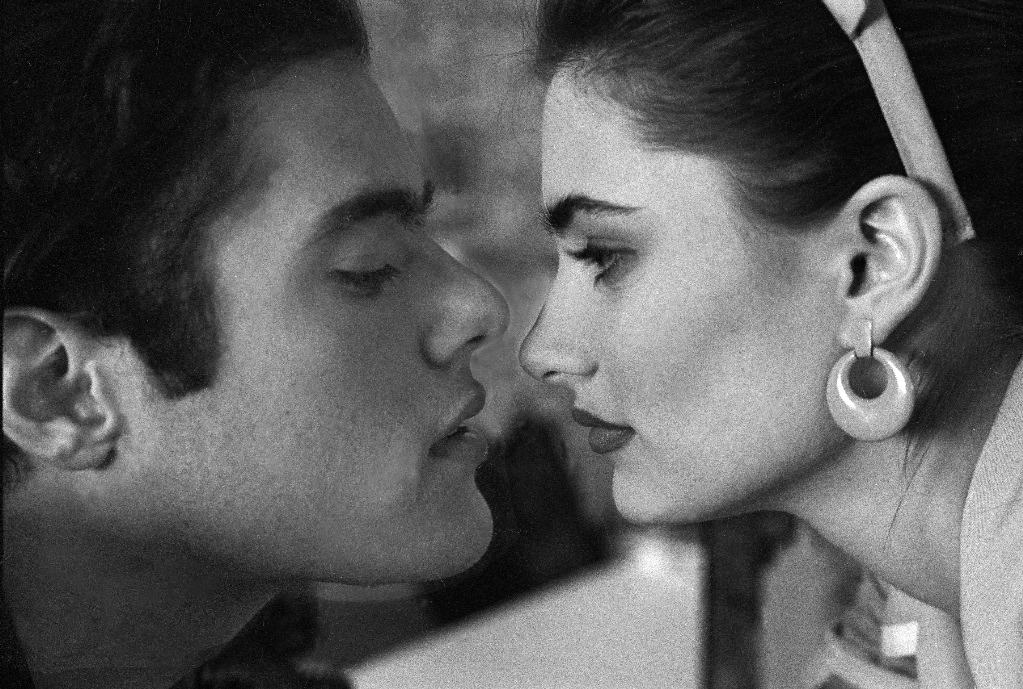
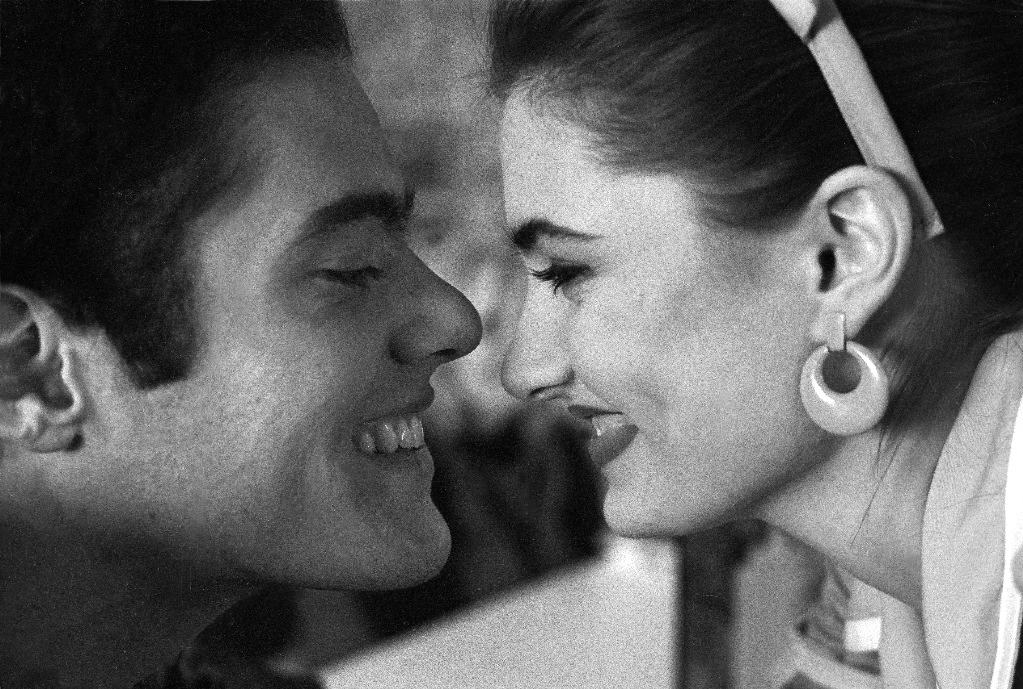
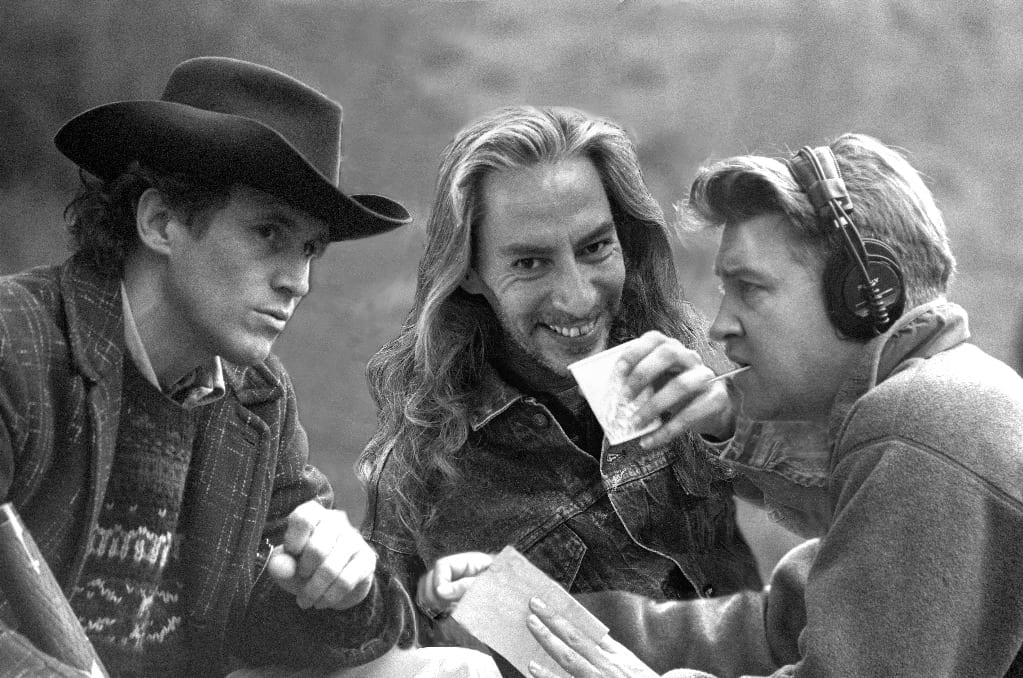
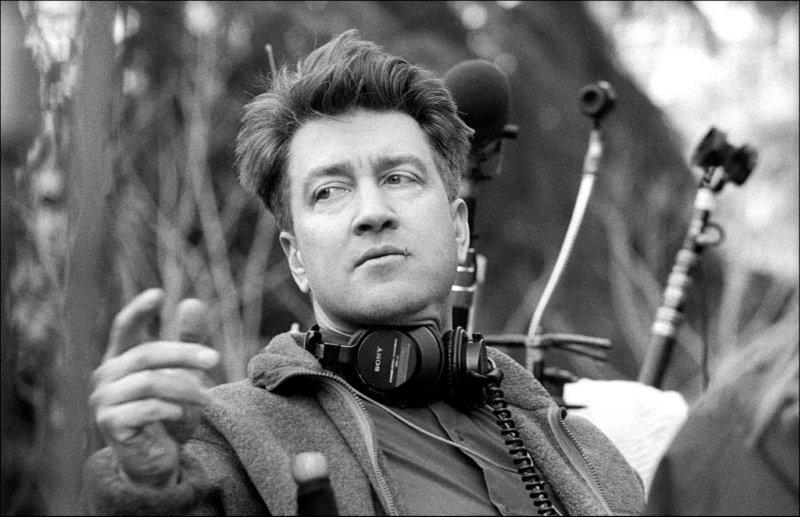
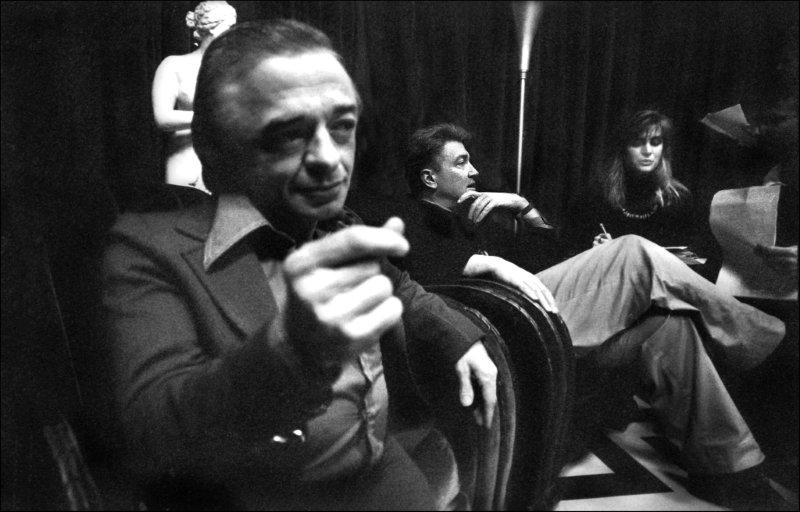
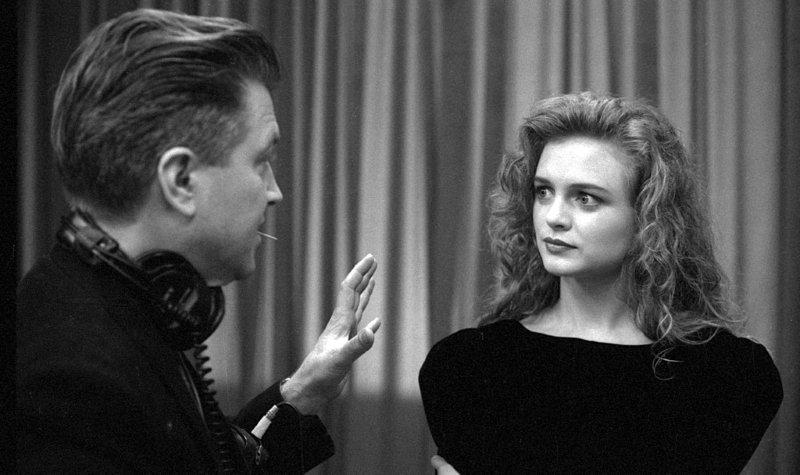
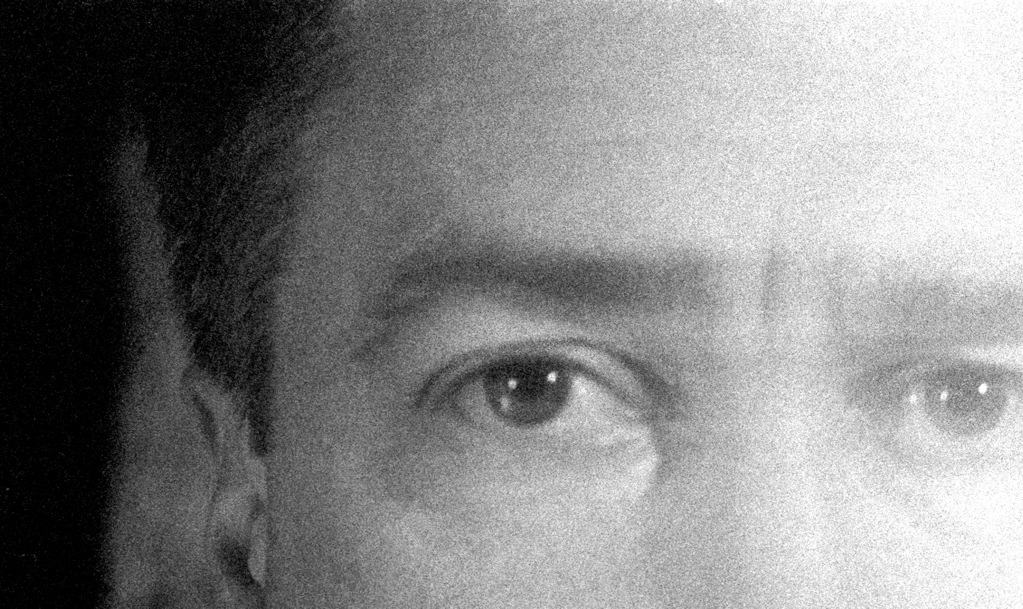
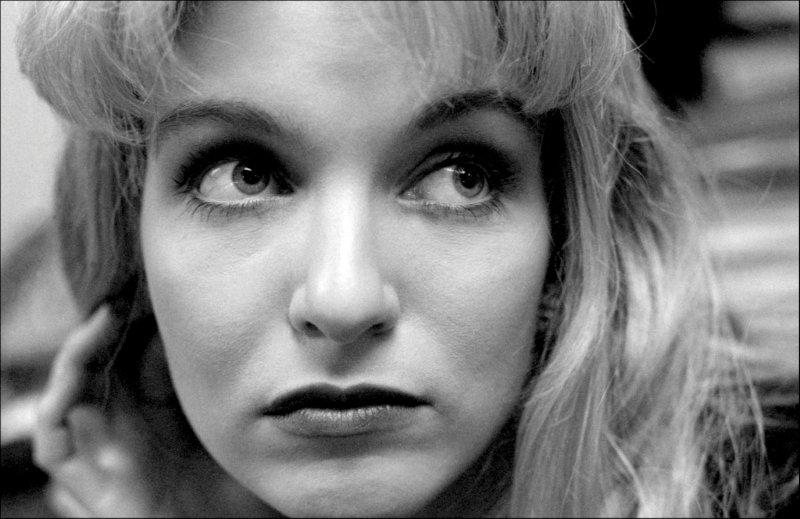
Dana Ashbrook: There’s a great sequence where Shelly and Laura and I go out into the woods at night to do a drug deal and it goes south. It’s a fifteen minute scene, and it was totally chaotic. We were allowed to really go crazy. I’ll always remember David at 3:30 in the morning with rubber gloves on, arranging the brains of the guy whose head I just blew off. It was freezing fucking cold, and he was there in the woods at the dead of night arranging brains.
Sabrina Sutherland: The whole story of Laura and her narrative, and what she went through, is something that has deeply affected me. I’ve met a lot of people who can relate to that. I can’t relate to her experience exactly, but I’ve certainly met enough people to know that that kind of trauma runs deep. I wasn’t exposed to that before on television. To see that storyline truly exposed in Fire Walk With Me, of this smooth family on the surface but underneath there’s this horrible thing happening, was very moving to me.
Dean Hurley: One of the things about the DIY approach is that you do a lot of things that you consider temporary when you’re working on something. ‘We need a voice here’ or ‘this disembodied character needs to be saying something that we’ll eventually get someone else to do but I’ll just do a version’. I ended up doing a lot of vocal stuff in season three that just stayed. There’s a scene where Richard Horne storms his grandma’s house and is dumping out her pocketbook onto the table looking for money and jewellery to steal. And Johnny [Horne] has this bear that is like “hello Johnny, how are you today?”. That’s my voice in there. There were many instances in the show where I could point out and say that it’s me. And I know how ghetto it is, that it’s just me. And yet David, with his magic wand, is like ‘that’s staying’. I think there’s a lot of fear in the creative process where creators are like ‘I’m not sure, are we feeling good about that?’. And David would just be like ‘we’re ok’. That sort of level of confidence is insane, refreshing and so rare.
Mark Frost: I’ll give you two. The very first shot we had on the show: the discovery of Laura’s body on the shores of Bainbridge island outside of Seattle. We were all there on the first day of production. My dad [Warren Frost] was there, playing Doc Hayward. The moment David got the shot, and we saw the way he depicted Cheryl [Lee] as Laura, we knew we were on to something magical. But there were things in every episode—not necessarily on film but moments you shared with somebody. We formed friendships that have lasted 35 years. And we’ve lost a lot of people along the way. That’s a life. That’s what happens.
Sabrina Sutherland: I’ll say this: It was probably the best thing he ever did. It was a culmination of a lot of things. We worked on this for over two years in terms of writing, and we were still writing up until the point he passed away. We were getting ready to go back to Netflix because he had re-envisioned some things about it, and it had morphed into something even better than it was. I hope that one day people will be able to experience it in some way.
Twin Peaks and Twin Peaks: The Return is currently streaming on MUBI. For those looking to enjoy the works of David Lynch on the big screen, check out the BFI website for updates on their newly announced Lynch season, opening in January 2026.





